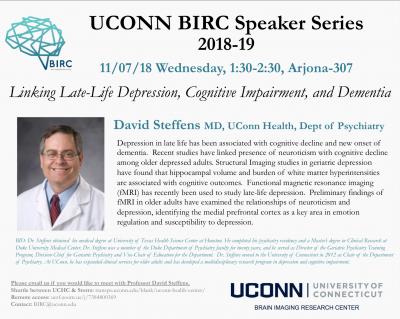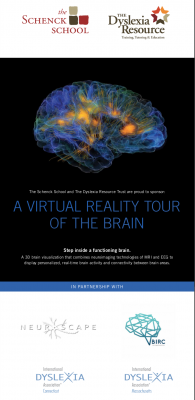UCONN Health, Department of Psychiatry
Wednesday, November 7 2018 1:30-2:30PM Arjona 307
Abstract: Depression in late life has been associated with cognitive decline and new onset of dementia. Recent studies have linked the presence of neuroticism with cognitive decline among older depressed adults. Structural Imaging studies in geriatric depression have found that hippocampal volume and burden of white matter hyperintensities are associated with cognitive outcomes. Functional magnetic resonance imaging (fMRI) has recently been used to study late-life depression. Preliminary findings of fMRI in older adults have examined the relationships of neuroticism and depression, identifying the medial prefrontal cortex as a key area in emotion regulation and susceptibility to depression.
Speaker Bio: Dr. Steffens has been funded by the NIH for over twenty-five years. His research focuses on links between late-life depression and subsequent cognitive decline and development of dementia. Assessments include structural and functional brain imaging, neuropsychological testing, blood work for peripheral markers and genetics, personality assessment, functional status, and measures of stress and social support.
Visitors from UCHC are encouraged to use the UCHC-Storrs shuttle service. Talks can also be joined remotely. Please contact us if you are interested in meeting with the speaker.


